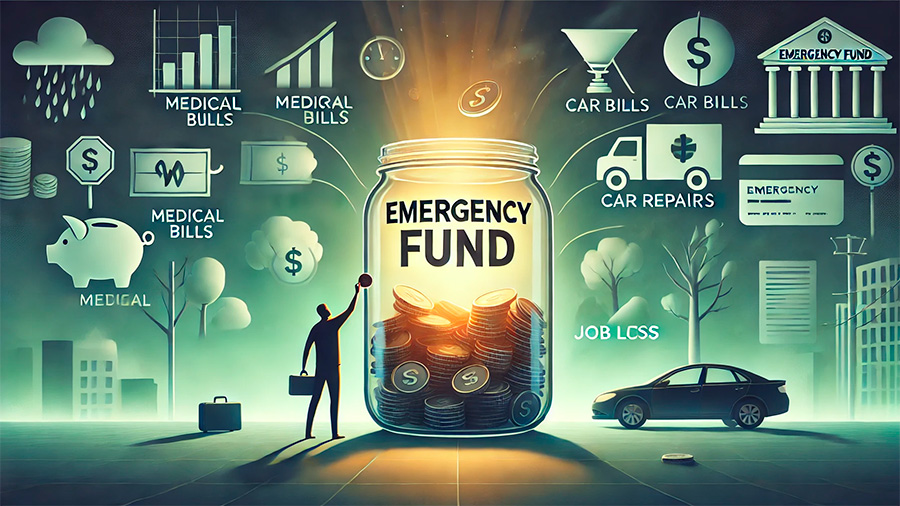Managing debt during a financial crisis is one of the most critical steps to regaining control of your finances. Economic downturns can lead to job losses, reduced income, and increased living costs, all of which can make it difficult to keep up with loan repayments and credit card bills. When financial pressures mount, it becomes essential to take strategic actions to reduce your debt burden and avoid further financial strain.
Effectively reducing debt during a crisis requires a proactive approach, careful planning, and the willingness to make adjustments to your spending habits. By focusing on priority debts, cutting unnecessary expenses, and exploring relief options, you can regain financial stability and avoid falling deeper into debt. Here’s how to reduce your debt and improve your financial health during challenging economic times.
Prioritize High-Interest Debts
One of the most effective ways to reduce debt during a financial crisis is to focus on paying off high-interest debts first. These debts, typically in the form of credit card balances or payday loans, accumulate interest quickly and can snowball into larger financial burdens over time. By prioritizing high-interest debts, you can reduce the overall amount of interest you’ll pay, making it easier to manage your debt in the long term.
Start by identifying which of your debts carry the highest interest rates and allocate as much of your budget as possible toward paying off these balances. Making larger payments on high-interest debts while maintaining minimum payments on lower-interest loans can help you reduce your debt faster and save money on interest.
The Snowball and Avalanche Methods
Two common strategies for paying off debt are the snowball method and the avalanche method. The snowball method involves paying off the smallest debts first to build momentum and motivation, while the avalanche method focuses on paying off high-interest debts first to minimize the total interest paid over time. During a financial crisis, the avalanche method is often more cost-effective, as it targets the most expensive debts and reduces the risk of interest compounding.
Refinancing or Consolidating High-Interest Debts
If your high-interest debts are overwhelming, consider refinancing or consolidating them to secure a lower interest rate. Personal loans, balance transfer credit cards, or debt consolidation loans can help you combine multiple debts into a single, lower-interest payment. This approach can reduce your overall interest burden, making it easier to manage your monthly payments and pay off your debt more quickly.
Cut Non-Essential Expenses
Reducing your monthly expenses is essential when managing debt during a financial crisis. Cutting non-essential spending allows you to free up more money to allocate toward debt payments. Take a hard look at your budget and identify areas where you can cut back. This might include reducing dining out, pausing subscription services, or delaying non-essential purchases.
While cutting expenses may require some lifestyle adjustments, it’s a necessary step to regain control over your finances. Redirect the money saved from cutting non-essential expenses toward paying off your debts faster, helping you reduce your financial obligations over time.
Review and Adjust Your Budget
Start by reviewing your budget to get a clear understanding of where your money is going each month. Separate your expenses into essential categories—such as housing, utilities, food, and debt payments—and non-essential categories like entertainment, subscriptions, and travel. Identify which non-essential items can be reduced or eliminated entirely. Even small changes, such as cutting back on coffee runs or dining out less frequently, can add up and make a significant difference in your ability to pay off debt.
Automate Debt Payments
Once you’ve adjusted your budget, consider automating your debt payments to ensure you stay on track. Setting up automatic payments ensures that your debts are paid on time each month, helping you avoid late fees and penalties. Automating payments can also help you stay disciplined with your debt repayment plan, making it easier to prioritize debt reduction.

Negotiate with Creditors for Better Terms
If you’re struggling to make payments during a financial crisis, it’s important to communicate with your creditors as early as possible. Many lenders and credit card companies offer hardship programs, especially during times of widespread economic downturns. These programs may provide temporary relief by reducing interest rates, waiving late fees, or allowing you to defer payments for a period of time.
Negotiating with your creditors can provide much-needed breathing room and help you avoid falling behind on payments. Be honest about your financial situation and inquire about any options available to help you manage your debt during the crisis.
Ask for Lower Interest Rates
Some creditors may be willing to lower your interest rate temporarily, especially if you’ve been a responsible borrower in the past. Reducing your interest rate can lower your monthly payments and help you pay down your debt more quickly. When contacting your creditors, be polite but firm in your request, and emphasize your commitment to repaying your debts despite the financial difficulties you’re facing.
Request Payment Deferrals or Forbearance
If you’re unable to make payments on time due to loss of income, ask your creditors if they offer payment deferral or forbearance options. Payment deferral allows you to temporarily pause your loan payments without incurring late fees, while forbearance may reduce or suspend payments for a limited time. These options can give you some temporary relief, but keep in mind that interest may continue to accrue during the deferral period, so it’s important to clarify the terms with your lender.
Explore Debt Relief Options
During a financial crisis, exploring debt relief options can help reduce your debt burden if you’re struggling to manage multiple loans. Debt relief programs are designed to help borrowers manage or eliminate debt through various methods, such as debt settlement, debt consolidation, or bankruptcy.
Each debt relief option comes with its own advantages and disadvantages, so it’s important to carefully consider your options and consult with a financial advisor if necessary. While these programs can provide relief, they may also have long-term impacts on your credit score, so weigh the pros and cons before proceeding.
Debt Settlement Programs
Debt settlement involves negotiating with your creditors to reduce the total amount of debt you owe. In a debt settlement program, a third-party agency works with your creditors to reach a settlement, which may involve paying a lump sum that is less than the full amount of the debt. While debt settlement can help you resolve your debts for less than you owe, it can also have a negative impact on your credit score and should be approached with caution.
Debt Consolidation Loans
Debt consolidation loans allow you to combine multiple debts into a single loan with a lower interest rate. This simplifies your payments and can make it easier to manage your debt. By consolidating your debt, you may also be able to secure more favorable loan terms, such as lower monthly payments or a longer repayment period. However, be mindful of any fees associated with debt consolidation loans, and ensure that the loan truly offers a lower interest rate than your existing debts.

Build an Emergency Fund to Avoid Future Debt
One of the best ways to protect yourself from future financial crises is to build an emergency fund. Having savings set aside for unexpected expenses can prevent you from relying on credit cards or loans during difficult times. While building an emergency fund may seem difficult when you’re focused on paying off debt, setting aside even a small amount each month can make a difference over time.
An emergency fund acts as a financial cushion, helping you cover essential expenses such as medical bills, car repairs, or job loss without incurring additional debt. Aim to save enough to cover at least three to six months’ worth of living expenses, which can provide significant protection during uncertain economic times.
Set Small, Achievable Savings Goals
If you’re struggling to balance debt repayment with building an emergency fund, start by setting small, achievable savings goals. For example, aim to save $500 or $1,000 as a starting point, and gradually increase your savings as your financial situation improves. By making consistent contributions to your emergency fund, you can build financial resilience and avoid relying on debt in the future.
Automate Savings Contributions
To make saving easier, consider automating your savings contributions. Set up automatic transfers from your checking account to a dedicated savings account each month, ensuring that a portion of your income goes directly toward building your emergency fund. Even small, regular contributions can add up over time, helping you build a financial safety net.
Seek Professional Financial Guidance
If your debt situation feels overwhelming, consider seeking help from a financial advisor or credit counselor. A professional can help you assess your financial situation, create a debt repayment plan, and explore options for reducing your debt burden. Credit counseling agencies can also provide assistance with negotiating with creditors or enrolling in debt management programs.
Working with a financial professional can give you a clearer understanding of your options and help you develop a personalized strategy for reducing your debt and regaining financial stability.
Credit Counseling Services
Credit counseling agencies offer services to help individuals manage their debt and improve their financial health. These agencies can assist with budgeting, debt management plans, and negotiating with creditors. If you’re considering credit counseling, be sure to choose a reputable, accredited agency to avoid scams and ensure you receive legitimate advice.
Debt Management Plans
Debt management plans (DMPs) are structured repayment programs that consolidate your debts into one monthly payment, often with reduced interest rates or waived fees. A credit counselor works with your creditors to create a DMP that fits your budget. These plans can make it easier to manage your debt, but they require you to stick to a strict repayment schedule. Additionally, enrolling in a DMP may affect your credit score, so it’s important to fully understand the terms before committing.
Conclusion: Taking Control of Your Debt During a Crisis
Reducing debt during a financial crisis requires careful planning, disciplined budgeting, and proactive communication with creditors. By prioritizing high-interest debts, cutting non-essential expenses, and exploring relief options, you can take control of your finances and work toward a more stable financial future. Building an emergency fund and seeking professional guidance can also provide long-term protection against future financial challenges.
While it may take time to reduce your debt, taking small, consistent steps can help you regain control of your financial situation and prevent further financial strain during challenging economic times.

